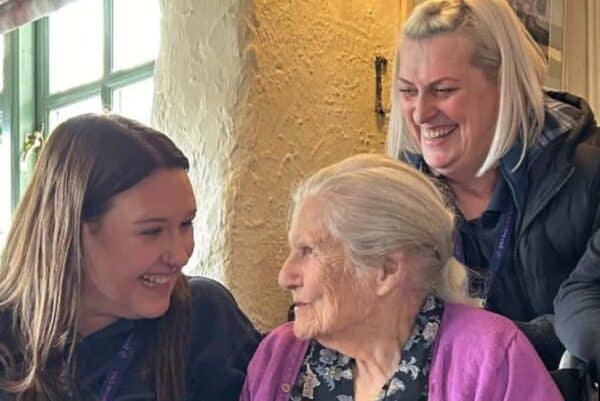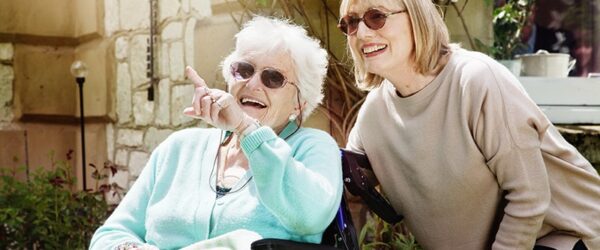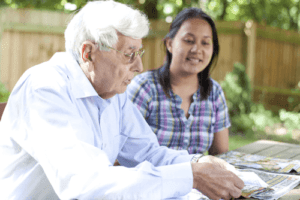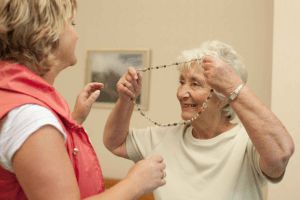If you’ve decided that looking after a loved one at home is the best option then you’ll need to be fully prepared for what it means in practice to become a family caregiver. Here’s a quick guide to help you make a start.
Understand what you’re taking on
A residential care home or a professional live-in carer would typically provide all meals, personal care and daily activities, as well as taking care of health needs and managing medications, appointments and any special requirements. Therefore, the first thing to work out is who in the family is willing and able to take on this responsibility?
Prepare the home
It is wise to first look at how the home can be adapted to meet health and safety standards. This could be as simple as fitting adaptations and aids to help them get around the house and garden safely, such as ramps, handrails, stairlifts or ramps.
Special equipment such as hoists or specialist medical devices should be put in place well in advance. Rearrange the furniture and the layout of rooms where necessary to allow easier movement for someone with balance problems or who uses a walker or wheelchair.
Make sure you inform the GP and other relevant health professionals of your intention to be a family caregiver for your loved one at home.
Instructions for family members
It’s important that all family members communicate with each other. These could be messages about whether the elderly person has had their medication for instance or whether any appointments are due. A WhatsApp group makes this easy to manage. Better still, have a formal ‘day book’ which family carers can fill in every day to confirm what has been done and highlight any issues. Schedule regular meetings every so often, perhaps once a week, with all family members to discuss any concerns and work out a strategy for dealing with them.
Create a care plan
Work with the person and their health professionals if necessary to develop an appropriate care plan. This could include:
• Daily routines – meals and dietary preferences, medications, personal care
• Physical and emotional needs – exercise, help with mobility, companionship needs
• Care and exercise requirements of any pets
• Emergency contacts
Include in the care plan all your loved one’s social activities. Continuing to see friends and enjoy social and recreational activities is vital for their physical and mental health and wellbeing. Family members should decide who will take responsibility for ensuring these continue; perhaps a rota could be drawn up so that it doesn’t become the responsibility of just one person.
Are you emotionally ready?
Providing daily care with all it entails can be physically and emotionally demanding. Reach out to your local caregiver network for support and advice; or contact charities such as Age UK if you need help.
And if it all becomes too much, consider how a live-in carer could help either part-time or full-time to avoid all the stress involved in being a family carer.






